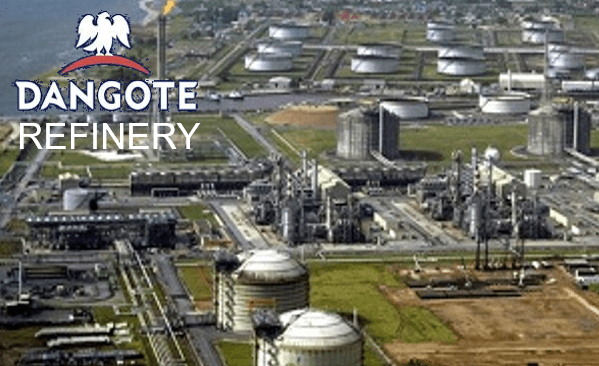Dangote Refinery Commences Supply of Petroleum Products To Nigerian Market
Dangote Refinery has recently started supplying petroleum products to the local market, marking a significant achievement in Nigeria’s journey towards energy self-sufficiency. This important milestone has been confirmed by a company executive and fuel marketing associations, highlighting the country’s determination to achieve energy independence.
Located on a peninsula on the outskirts of Lagos, which is Africa’s largest city and Nigeria’s commercial capital, the Dangote refinery is a testament to the visionary leadership of its chairman, Aliko Dangote. With a refining capacity of up to 650,000 barrels per day (bpd), it is set to become the largest refinery in Africa and Europe once it reaches full operational capacity, expected later this year.
According to a Dangote executive, Devakumar Edwin, diesel and jet fuel shipments have already commenced in the local market. He mentioned that there are substantial quantities of products being evacuated both by sea and road, with ships lining up to load diesel and aviation jet fuel. Efforts are being made to maximize efficiency by accommodating vessels carrying up to 37 million litres, while the minimum load is typically 26 million litres.
In a bulk purchase agreement with Dangote, local oil marketers, represented by the Independent Petroleum Marketers Association of Nigeria, have agreed to a price of 1,225 naira ($0.96) per litre of diesel. Abubakar Maigandi, the head of the association, revealed that its members oversee around 150,000 retail stations across Nigeria.
The organization is poised to help Nigeria conserve much-needed foreign exchange that would have been used for importing fuels, while also generating hard currency by supplying products to international markets.
Nigeria currently allocates a minimum of 50 percent of its $30 billion import budget to fuels, a figure that is expected to decrease significantly due to recent developments.
According to Reuters, Dangote’s Group Executive, Devakumar Edwin, confirmed the delivery of diesel and jet fuel to the local market. “We have ample quantities available. Products are being transported both by sea and land. Vessels are queuing up to load diesel and aviation jet fuel,” Edwin stated. “Ships typically load a minimum of 26 million liters, although we aim for 37 million liters vessels to streamline operations,” he further explained.




